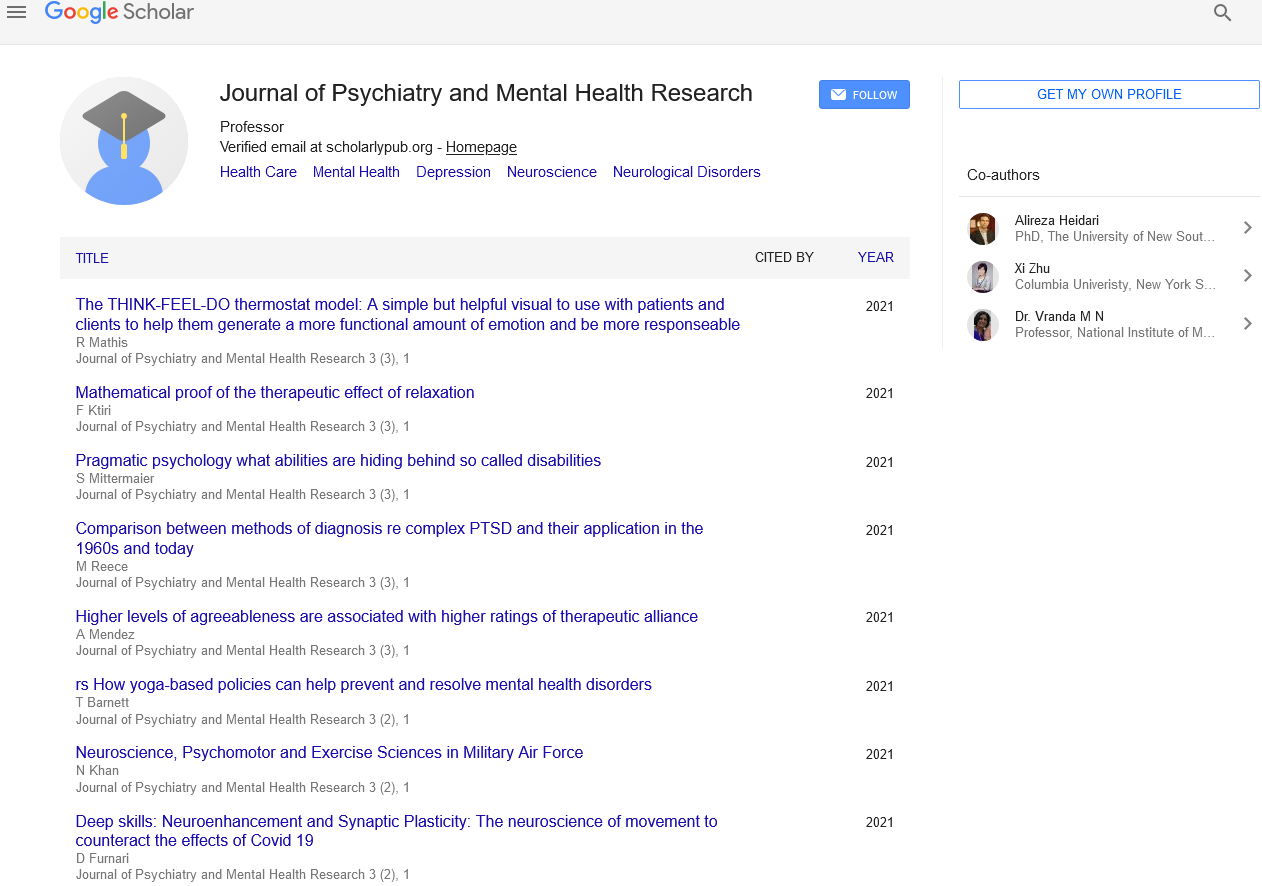
Sign up for email alert when new content gets added: Sign up
How to apply Artificial Intelligence in estimating Mental Illnesses, 2021
Webinar of 3rd World Congress on Mental Health & 8th International Conference on Brain Disorders and Therapeutics
February 03, 2022 | Webinar
Kadhim Alabady
Dubai Health Authority, UAE
ScientificTracks Abstracts: J Psychiatry & Mental Health Research
Abstract :
Background: Mental health is without doubt one of the most vital aspects of any child's development. It is an essential part of children's overall health and has an impact on the child’s physical health and their ability to be successful. Mental health increases children’s opportunity to live up to their full potential and do what is best for themselves and the people around them. Purpose: The purpose was to estimate the expected number of children or adults with mental disorder through. Method: In order to carry out this assessment we applied qualitative modeling (Artificial Intelligence approach) and quantitative methodology. Key findings: 1. Artificial intelligence can be used as tools to measure the differences level of actual registered cases with ASD and compared with the expected cases with foe a general population. 2. Annual birth figures can be applied to estimate the risk of developing autism spectrum disorder (ASD) in future. 3. Studies of eating disorders are so effective to determine the needs of required services for girls aged 13–19 years affected with anorexia nervosa and bulimia nervosa. 4. An estimated 5% of children and 2.5% of adults have ADHD. ADHD is often first identified in school-aged children when it leads to disruption in the classroom or problems with schoolwork. These figures can be applied to assess the expected number of people with ADH in the community. 5. Applying the postnatal depression prevalence rates (10–15%) to the number of annual total live births or pregnancies in estimating postnatal depression among women.
Biography :
Kadhim Alabady is a Fellow of the Faculty of Public Health UK (FFPH) and Fellow of the Royal College of Physicians and Surgeons of Glasgow (FRCP – Glasgow). He holds a Doctorate degree in Public Health and Epidemiology, Master degree in Clinical Epidemiology (MSc), Master degree in Public Health (MPH), all from The Netherlands Universities with broad experience in driving Research and Development (R&D) strategies and operations. He is registered as Epidemiologist Grade A with The Netherlands Epidemiological Society. He has numerous publications in the UK in Mental Illnesses, Cancer, Cardiovascular Diseases, Diabetes, Dementia, Autism, COPD, Population Health, Road Casualties’ Infectious Diseases, Vaccination, and others.




